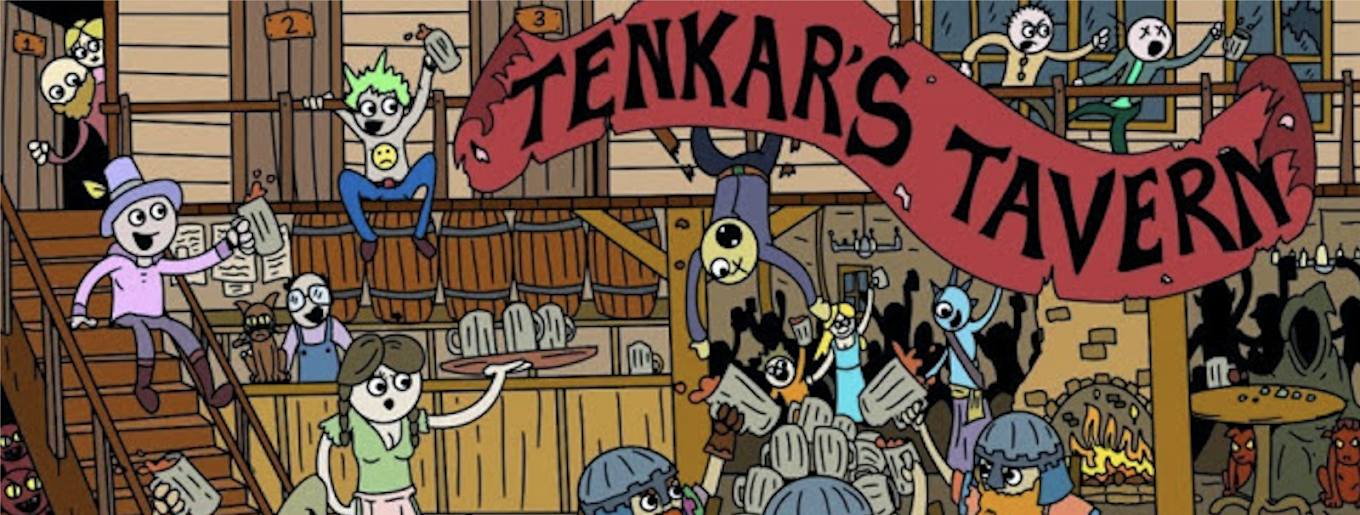Tonight, I'm going to take a short look at Chaotic Good as defined in the Player's Handbook and the Dungeon Master's Guide.
PH - CHAOTIC GOOD: While creatures of this alignment view freedom and the randomness (why the hell would randomness be valued?) of action as ultimate truths, they likewise place value on life and the welfare of each individual. Respect for individualism is also great. By promoting the gods of chaotic good, characters of this alignment seek to spread their values throughout the world.
DMG - CHAOTIC GOOD: To the chaotic good individual, freedom and independence are as important to life and happiness (this sentence is missing something). The ethos views this freedom as the only means by which each creature con achieve true satisfaction and happiness. Law, order, social forms, and anything else which tends to restrict or abridge individual freedom is wrong, and each individual is capable of achieving self-realization and prosperity through himself, herself, or itself (notice the randomness aspect is missing?).The DMG version of Chaotic Good makes more sense, which makes sense, as it's the later version of the definition (PH was released in 78 and the DMG in 79) that was published.
I do remember as a teenager thinking that Chaotic Good characters had to roll randomly to decide certain actions - they couldn't pick a direction at a "T" interestion in a dungeon, they had to roll. Now I know where we got this rule - the damn Player's Handbook itself and teenage interpretations ;)
"By promoting the gods of chaotic good, characters of this alignment seek to spread their values throughout the world." Couldn't this be said about nearly every alignment?
I remember back in my teen years that only Dungeon Masters were supposed to own and read the DMG and various MMs. Was it really fair to have a different definition for the alignments on the Player's side and the DM's side?
Lets play a game and help complete the definition of Chaotic Good after 33 years:
To the chaotic good individual, freedom and independence are as important to life and happiness AS: ___________- a warm puppy
- crushing your enemies, to see them driven before you, and to hear the lamentations of their women.
- add some random answers in the comments section ;)

I think random is taken too literally. It's not like they are rolling dice, just doing things on a whim, rather than doing things on a set schedule.
ReplyDeleteLike where do you eat? Do you go to the same place you always eat, or just pick a restaurant for no reason at all?
Do you always drive home the same day, or do you go different ways, just for the heck of it?
we certainly took it too literally back then, but obviously it didn't explain things well enoigh if they changed it the following year in the DMG ;)
DeleteTo the chaotic good individual, freedom and independence are as important to life and happiness AS: ___________
ReplyDeletePersonal responsibility and accountability.
I think Chaotic Good is the ultimate "bro-lignment" - you just sorta go through the world dependent on your personal badittude and privileged to do whatever the hell you want. You just don't really want to hurt people, unless they're in the way or up to no good. This is opposed to Chaotic Evil which is more raging psychopath or Chaotic Neutral which is a bit Ayn Rander. All of them are jerks. Actually I can't think of an alignment that isn't for jerks...
ReplyDeleteI like Gus' version.. The whole random thing made me laugh.. Here is how I percieve the difference between CG and LG. a LG character, the end never justifies the means if the means is breaking a law. To a CG character the end does justify the means. If I have to break the law to do something I feel is right.. *queue Judas Priest*
ReplyDelete